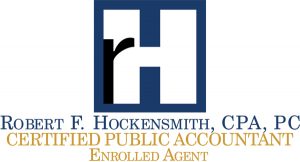Blog
Teaching Children about Finances and Self Reliance

Teaching Children about Finances and Self Reliance
Doesn’t the early bird catch the worm? So, starting early, as early as Kindergarten helps in shaping good financial habits in the long run. When they start identifying, pennies, nickels and dimes in school, it’s a good time to help them learn their penny’s worth. This week we will discuss about how to teach our children good financial habits. Only a few schools teach children a little about money or finance in their lessons, although if you want your children to pick up good financial habits, you should give them some specific training yourself.
Here are some considerations:
- Set a good example.
Children follow their parents lead and will emulate what they see, so keep your own financial affairs in order.
- Don’t give an allowance.
Make children earn money to spend. Allowances encourage expectations of getting something for nothing. Paying for performance says no work or no chores completed means no money given or earned. This way the child can only blame him or herself for not being paid. (Work means money, extra pay is ok for extra work.)
- Encourage savings.
Children need to learn early that waiting for something pays. The longer they wait, the more money they will have. Teach them the secret of compounding. (Piggy banks are ok – for young children try clear ones so they can watch their money grow, and try savings accounts for older children)
- Teach money management.
Show how to compare interest rates and teach them money doesn’t take care of itself.
- Explain why some money should be saved, some spent, and some given away to charity.
Teaching children how to save, spend, and donate teaches children to become better citizens, better taxpayers, and better contributors to society (1/3 saved, 1/3 spent, 1/3 donated is one option)
- Go to www.kids.gov to learn ways to teach money to kids, teens and adults.
This website shows you how to teach money uses and management to children (grades K-5), Teens (grade 6 -8), and grown-ups including teachers and parents. Uses games and videos to both educate and entertain.
Teaching Self Reliance and Financial Confidence
Helping your children financially by teaching self-reliance is one of the greatest gifts you can offer your children. Through teachings and setting a good example, you can help your children become financially responsible and independent adults. However, there is a fine line between helping your kids get started and enabling them to stay dependent. If your children live at home, expect them to contribute to the household. Even full-time students can share household chores and hold down part time jobs to help pay for room and board. If practical, hire your children through your business and expect them to earn those wages.
Before helping your child buy a car, determine whether the purchase is necessary. Are work and/or school within walking distance, is public transportation available, is using a bicycle feasible? If none of these alternatives are viable, enlist your child’s aide in finding and buying an affordable, but reliable car. The child should pay at least part of the purchase price and be responsible for insurance and operating costs. Or consider replacing your own vehicle and selling your old car to your child at its trade- in value.
- Helping your children be self-reliant is a better choice than purchasing something for them
Never give an allowance, instead require certain chores to be performed and pay them for completing. That way, children learn that nothing is free. They also learn if they do not work, they do not get paid.
- Before purchasing a car for your child, consider replacing your own vehicle
Sell your used vehicle to your child at trade-in value. You can find the trade in value online with Kelly Blue Book (https://www.kbb.com). This helps the child learn nothing is free. Another technique is to match what the child saves to purchase a car. Again, this teaches the child to work, get paid, and save for the future. Giving a car to a child is not helping them; it’s teaching them that someone other than themselves will provide for them.
- Determine whether the purchase is necessary
School/work nearby, public transportation. Children will always want more, no matter how much they have. Teaching them the difference between wants and needs is one of the best lesson’s parents can pass on to children. You know what a need is rather than a want; teach this to your children.
- Make sure the child is paying part of the purchase price and all operating expenses
Before they get the car or other want, make sure they can afford to keep up the item on a regular basis (gas, oil, tags, insurance, repairs), otherwise you will find yourself paying for the expenses of your kids, rather than teaching them to pay for themselves.
Call today, don’t delay! See how this affects you. We can be reached at 602-264-9331 and on all social media under azmoneyguy.
Be more prepared for this year’s tax season! Get your copy of Bob’s NEW book, 52 Ways to Outsmart the IRS, Weekly Tax Tips to Save You Money on Amazon, Kindle, or at Azmoneyguy.com (available in paperback and eBook).
Related Blog Posts
No Results Found
The page you requested could not be found. Try refining your search, or use the navigation above to locate the post.
Do You Owe The IRS?
Learn 5 Secrets The IRS Doesn't Want You To Know.
Click on the button below to get FREE access to this exclusive content.
Tax and Financial Advice from an expert
Mr. Hockensmith has been a guest newscaster for national and local TV stations in Phoenix since 1995, broadcasting financial and tax topics to the general pubic. He has written tax and accounting articles for both national and local newspapers and professional journals. He has been a public speaker nationally and locally on tax, accounting, financial planning and economics since 1992. He was a Disaster Reservist at the Federal Emergency Management Agency, for many years after his military service. He served as a Colonel with the US Army, retiring from military service after 36 years in 2008. Early in his accounting career, he was a Accountant and Consultant with Arthur Andersen CPA’s and Ernst & Young CPA’s.
Build strategies, build confidence, build your business.
We are ready to do business with you
Email: [email protected]
Tel: (602) 264-9331 (24x7)
Address:
3404 West Cheryl Drive
Suite A-170
Phoenix, AZ, 85051






